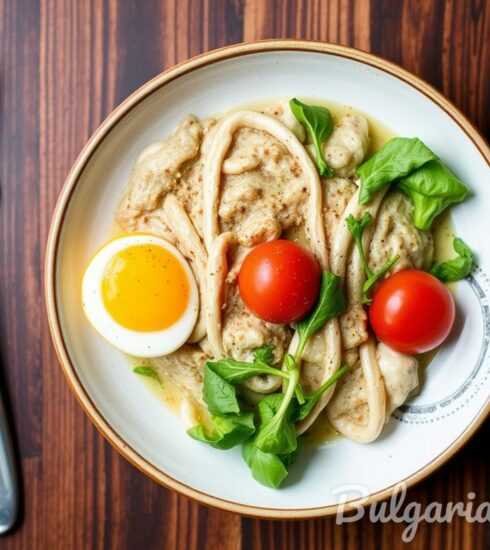Explore Bulgarias Rich Cuisine: A Guide to the Best Bulgarian Culinary Tour
Introduction
The culinary journey through Bulgaria is not just an expedition through various dishes, but an odyssey spanning centuries, telling tales of a diverse patchwork of civilizations that have shaped its modern-day culture. The Bulgarian cuisine, steeped in history, yet evolving continuously, offers a gastronomic chronicle that is both flavorful and enlightening. Feasting Through Time: Savoring Bulgaria’s Historical Eats and Modern Treats, embarks on this journey to explore the rich tapestry of flavors that this Balkan heartland has to offer.
The Foundations of Bulgarian Cuisine
The roots of Bulgarian culinary art stretch deeply into the folds of time, influenced by Thracian, Roman, Byzantine, and Ottoman practices. This culinary evolution has turned the Bulgarian table into a vibrant showcase of both robust and delicate flavors.

- Thracian contributions: The ancient Thracians, known for their skill in cultivation and fermentation of wine, have embedded the love for this grape beverage into the Bulgarian soul.
- Byzantine flavors: Through Byzantium influences, Bulgarians embraced a variety of spices, expanding their palette beyond simple salt and herbs.
- Ottoman impact: Centuries of Ottoman rule introduced savoriness with an array of pastries and sweets like baklava and banitsa, which have become staples in Bulgarian festivity.
Traditional Dishes in Bulgarian Cuisine
Bulgarian cuisine is outfitted with an arsenal of dishes that carry the whispers of generations. These recipes, passed from one hand to another, have preserved their identity amidst waves of culinary invasions.
Soups and Stews
Perhaps the cornerstone of Bulgarian diet, the variety of soups and stews like ‘Shkembe Chorba’ (tripe soup) and ‘Tarator’ (cold cucumber soup) are not only staples but are also celebrated through festivals and family gatherings.

Main Courses
The main courses are a robust affair, heavily featuring meats such as pork, chicken, and lamb. A notable dish is ‘Kavarma’, a perennial favorite that luxuriates in a slow-cooked melody of meat, onions, mushrooms, and wine.
Salads and Relishes
No Bulgarian meal completes without a salad, with the ‘Shopska Salata’ – a refreshing mix of tomatoes, cucumbers, onions, and a generous topping of cheese, being the most emblematic.
Modern Twists on Traditional Favorites

Innovation in Bulgarian dishes is vivid as contemporary chefs delve into the past, extract its essence, and present old flavors wrapped in new robes. Establishments in Sofia and beyond experiment with traditional recipes, offering them with a modern touch that caters to evolving palates yet respects the culinary narratives.
Gastronomical Experiences to Not Miss
For those wishing to dive deeper into Bulgaria’s culinary arts, certain experiences are quintessential:
- Attend a Bulgarian Food Festival: Regional festivals offer a mosaic of tastes and preparations, showcasing local culinary talents.
- Wine Tasting Tours: The country’s vineyards, some ancient, provide insights into the winemaking tradition and offer samplings of uniquely Bulgarian varietals like Mavrud and Melnik.
- Home Cooking Lessons: Some community centers and private homes open their kitchens to teach the curious the nuances of crafting authentic Bulgarian dishes.
The Role of Festivals in Bulgarian Culinary Traditions

Bulgarian culinary festivals are not merely about food; they are vibrant expressions of culture and community life. They serve as platforms for safeguarding culinary heritage, where timeless recipes are passed down and reinvented. Festivals like the ‘Bansko Gourmet Festival’ or ‘Sofia Food Truck Show’ blend the old with the new, creating a feast for the senses.
Conclusion
The culinary essence of Bulgaria is crafted from the historical layers of influence and its own inventive modern spirit. As we feast through time, from historical eats to modern treats, Bulgaria’s culinary landscape continues to enchant and inspire food lovers globally, making every meal a narrative of its rich past and promising future.
Explore More
If you’re eager to dive deeper into the specifics of Bulgarian culinary traditions, consider exploring our dedicated articles on Bulgarian delicacies and Bulgarian gastronomy. These pieces offer a deeper insight into the local food scene, helping you appreciate the finesse and depth of Bulgarian cuisine in greater detail.






